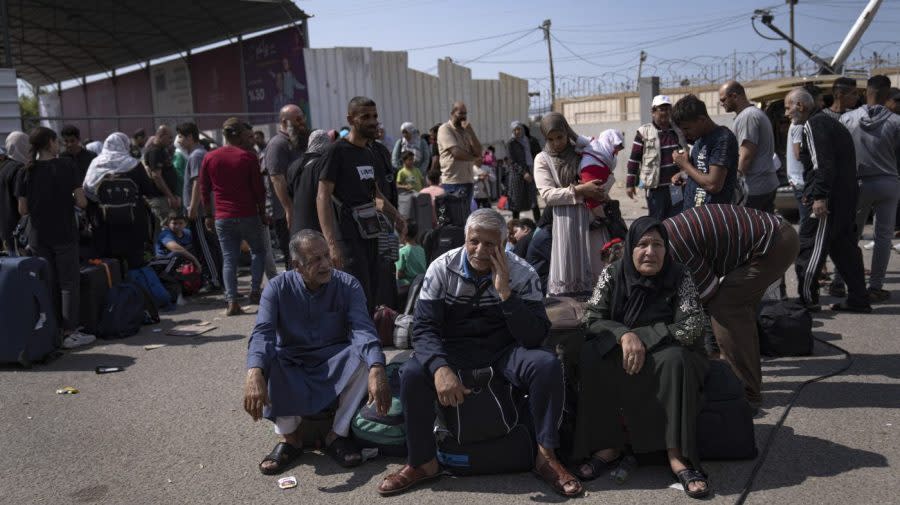WHO warns of disease spread in Gaza

The World Health Organization (WHO) on Wednesday warned of the rapid spread of infectious diseases in Gaza as basic necessities run out and fighting rages between Israel and Hamas.
The WHO said “intense overcrowding” coupled with disrupted health, water and sanitation systems, has increased the risk of bacterial infections spreading through contaminated water in the besieged enclave.
Israel has severely limited the amount of supplies allowed to cross into Gaza as part of its counteroffensive against Hamas, after the group’s attack on Israel last month that killed more than 1,400 people, including hundreds of civilians.
After what started as a “complete siege” on food, water, medicine and fuel supplies, Israel has since allowed a series of small aid convoys into the enclave, though humanitarian groups in Gaza have warned it’s not nearly enough to remedy the crisis.
The WHO said Gaza’s lack of fuel, which remains banned under Israel’s blockade, is leading to the closures of desalination plants and increasing the risk of infections like diarrhea. Since mid-October, more than 33,500 cases of diarrhea have been reported, with more than half of the cases being in children younger than 5, according to WHO.
Over that time, the WHO reported nearly 9,000 cases of scabies and lice, more than 1,000 cases of chickenpox, more than 12,600 cases of skin rash and more than 54,800 cases of upper respiratory infections in Gaza.
Coupled with damaged water and sanitation systems and dwindling cleaning supplies, the WHO said it is “almost impossible” to maintain basic infection prevention and control measures, especially when it comes to surgery, wound care, trauma and childbirth.
In the wake of ongoing attacks from Israel, an estimated 1.5 million Palestinians in Gaza have been displaced from their homes and moved into schools-turned-shelters or hospitals. The WHO pointed to the overcrowding of these shelters, calling the disease trends “very concerning.”
The disruption in fuel supplies is also impacting the enclave’s solid waste collection, boosting the spread of insects and disease-carrying rodents.
Reiterating its calls for quicker access to humanitarian aid, the WHO said all parties in the conflict “must abide by their obligations under international humanitarian law to protect civilians and civilian infrastructure, including health care.”
More than 10,000 Palestinians have been killed in the conflict, according to the Hamas-run Gaza Health Ministry.
Mediators have floated the idea of a three-day humanitarian cease-fire in exchange for the release of around a dozen hostages held by Hamas, which is believed to have captured more than 200 people in Israel during the Oct. 7 attacks.
For the latest news, weather, sports, and streaming video, head to The Hill.

